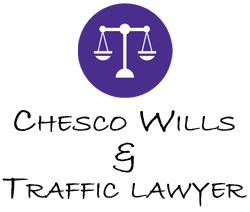Finding the right commercial lawyer can be a crucial decision for businesses in Melbourne. Commercial lawyers play a vital role in ensuring legal compliance, protecting the interests of the business, and providing valuable advice on various legal matters. However, with a plethora of options available, it can be overwhelming to select the best commercial lawyer for your specific needs. This article aims to guide entrepreneurs and business owners in Melbourne on how to choose the best commercial lawyers for their organization.
Understanding the Role of a Commercial Lawyer
A commercial lawyer specializes in providing legal advice and representation to businesses in commercial and corporate matters. They possess in-depth knowledge of specific areas of commercial law, such as contract law, intellectual property, employment law, and corporate governance. Commercial lawyers act as legal advisors, strategists, and negotiators, enabling businesses to make informed decisions and navigate complex legal issues.
But what exactly does it mean to be a commercial lawyer? Let’s delve deeper into their key responsibilities and the importance of specialization in commercial law.
Key Responsibilities of Commercial Lawyers
Commercial lawyers undertake various responsibilities to safeguard the interests of their clients. These responsibilities may include drafting and reviewing contracts, negotiating deals, resolving disputes, handling intellectual property matters, ensuring compliance with relevant laws and regulations, and providing general legal advice to support business growth and success. Understanding the key responsibilities of commercial lawyers can help businesses identify their specific legal needs and select the right lawyer accordingly.
When it comes to drafting and reviewing contracts, commercial lawyers meticulously analyze every clause and provision to ensure that the agreement aligns with their client’s goals and protects their interests. They have a keen eye for detail and a deep understanding of contract law, enabling them to identify potential pitfalls and negotiate favorable terms.
In addition to contract-related matters, commercial lawyers also play a crucial role in resolving disputes. Whether it’s through negotiation, mediation, or litigation, they work tirelessly to achieve the best possible outcome for their clients. Their expertise in commercial law allows them to navigate complex legal processes and present compelling arguments in court.
The Importance of Specialization in Commercial Law
When choosing a commercial lawyer, it is crucial to consider their specialization in commercial law. Commercial law is a vast and complex field, encompassing various sub-areas such as mergers and acquisitions, commercial litigation, banking and finance, real estate, and more. A lawyer with specialization in the relevant area can provide more tailored and effective legal advice, ensuring that your business is adequately represented in legal matters.
For example, if your business is involved in a merger or acquisition, it is essential to have a commercial lawyer with expertise in this area. They will guide you through the complex process, conduct due diligence, and ensure that all legal requirements are met. Similarly, if you are facing a commercial litigation case, a lawyer specialized in this field will have the necessary skills and experience to handle the complexities of the courtroom.
By choosing a commercial lawyer who specializes in the specific area of commercial law that aligns with your business needs, you can benefit from their deep knowledge, experience, and insights. They will be able to provide you with the most relevant and effective legal advice, helping you navigate the intricacies of commercial law and achieve your business objectives.
Factors to Consider When Choosing a Commercial Lawyer
Selecting the best commercial lawyer requires careful consideration of several factors. Here are key factors to keep in mind:
Experience and Expertise
Experience and expertise are vital criteria to evaluate when choosing a commercial lawyer. An experienced lawyer brings valuable insights and a track record of handling similar cases successfully. Assess the lawyer’s experience in dealing with commercial matters, including their success rate, notable cases, and years of practice in the field. Additionally, consider their expertise in the specific area of commercial law relevant to your business.
For example, if your business operates in the technology industry, it would be beneficial to find a commercial lawyer who has experience in handling intellectual property issues, contract disputes, and regulatory compliance specific to technology companies. Their expertise in these areas will ensure that they can provide tailored advice and representation that aligns with the unique challenges faced by businesses in your industry.
Reputation and Reviews
The reputation of a commercial lawyer speaks volumes about their professionalism, integrity, and legal competence. Conduct thorough research to gather information on their reputation, including online reviews, testimonials, and references from past clients. Look for lawyers who have a positive reputation within the legal community and a solid track record of delivering favorable outcomes for their clients.

Furthermore, it is essential to consider the lawyer’s reputation in terms of their approach to handling cases. Some lawyers may have a reputation for being aggressive and confrontational, while others may be known for their negotiation skills and ability to find creative solutions. Depending on your preferences and the nature of your business, you may want to choose a lawyer whose reputation aligns with your desired approach to resolving legal disputes.
Communication and Responsiveness
Clear and effective communication is key to a successful attorney-client relationship. A good commercial lawyer should possess excellent communication skills, both oral and written, to ensure that they understand your business needs and advise you accordingly. Moreover, they should be responsive and accessible, promptly addressing your queries and concerns.
When evaluating a lawyer’s communication and responsiveness, consider their ability to explain complex legal concepts in a clear and concise manner. A lawyer who can effectively communicate legal information to you will enable you to make informed decisions that align with your business objectives. Additionally, responsiveness is crucial, as timely communication can be critical in commercial matters where time is of the essence. Click here to learn about the role of commercial lawyers in Sydney: what you need to know.
Furthermore, it is worth considering the lawyer’s availability and workload. While it is essential to choose a lawyer who is in high demand due to their expertise, you also want to ensure that they have the capacity to dedicate sufficient time and attention to your case. Finding a balance between a lawyer’s workload and their ability to provide personalized attention to your legal matters is crucial for a successful attorney-client relationship.
The Process of Finding a Commercial Lawyer in Melbourne
Utilizing Online Directories
One of the easiest ways to find commercial lawyers in Melbourne is by utilizing online directories specifically designed for legal professionals. These directories provide comprehensive listings of commercial lawyers along with their areas of specialization, contact information, and sometimes client reviews. Effortlessly browse through the options and shortlist potential candidates based on your specific requirements.
Moreover, these online directories often offer advanced search filters that allow you to narrow down your options based on criteria such as years of experience, successful case outcomes, and languages spoken. This level of detail can help you find a commercial lawyer in Melbourne who not only meets your legal needs but also aligns with your preferences and expectations.
Seeking Recommendations and Referrals
Seeking recommendations and referrals from trusted sources, such as other business owners, colleagues, or industry associations, can be an effective way to find reputable commercial lawyers. These recommendations often come from firsthand experiences and can provide valuable insights into a lawyer’s expertise, professionalism, and client satisfaction level.
Additionally, when seeking recommendations, consider reaching out to legal professionals in other fields, such as real estate or intellectual property law. These professionals may have networks and insights that can lead you to a commercial lawyer in Melbourne who has a strong reputation for handling complex business matters with skill and efficiency.
Interviewing Potential Candidates
Once you have compiled a list of potential commercial lawyers, it is crucial to schedule interviews or initial consultations to evaluate their suitability further. Prepare a list of questions to ask during these meetings, focusing on their experience, approach to handling commercial cases, fee structures, and their understanding of your specific business needs. These interviews will help you gauge a lawyer’s compatibility with your organization.
Furthermore, during these interviews, pay attention to non-verbal cues such as body language and tone of voice. These subtle indicators can provide additional insights into a lawyer’s communication style and level of confidence, which are essential factors in establishing a productive attorney-client relationship.
Making the Final Decision
Assessing the Lawyer’s Strategy
During the selection process, pay close attention to each candidate’s strategy for handling commercial cases. They should demonstrate a comprehensive understanding of your business goals and offer a strategic approach to achieve the desired outcomes. Ask for examples of similar cases they have handled and how they achieved success for their clients.
For instance, a skilled commercial lawyer might share a story about a case where they successfully negotiated a favorable settlement for a client facing a complex contractual dispute. They could explain how they meticulously analyzed the contract, identified potential loopholes, and strategically presented their client’s position to maximize the chances of a positive outcome. This level of detail and insight into their strategy can give you confidence in their ability to handle your own legal matters.

Comparing Fees and Billing Structures
Budgetary considerations are important when choosing a commercial lawyer. Compare the fee structures and billing practices of different lawyers to ensure transparency and affordability. Some lawyers may charge hourly rates, while others may offer fixed fee arrangements or contingency-based fees. Determine which fee structure aligns best with your budget and legal needs.
Let’s say you come across a commercial lawyer who offers a unique fee structure that combines a lower hourly rate with a success fee. This means that if they achieve a positive outcome for your case, they will receive an additional percentage of the amount recovered. This arrangement not only incentivizes the lawyer to work diligently on your behalf but also provides you with a potential cost-saving opportunity. It’s worth considering such innovative billing structures when making your decision.
Trusting Your Gut Feeling
Ultimately, trust your instincts when making the final decision. Consider all the relevant factors, including experience, expertise, reputation, communication, and strategy. Choose a commercial lawyer with whom you feel comfortable sharing sensitive information and discussing complex legal matters. Trust is vital in building a strong attorney-client relationship that will benefit your business in the long run.
Imagine meeting with a commercial lawyer who not only possesses an impressive track record and extensive knowledge but also has excellent communication skills. They take the time to listen attentively to your concerns, explain legal concepts in a clear and concise manner, and make you feel at ease throughout the entire consultation. This level of comfort and trust can greatly enhance the working relationship between you and your lawyer, ensuring effective collaboration and a smoother legal process.
By following these guidelines and considering the factors mentioned, businesses in Melbourne can make an informed decision and choose the best commercial lawyer suited to their unique legal requirements. A reliable and competent commercial lawyer can be a valuable asset to a business, providing much-needed legal guidance and support in navigating the complex landscape of commercial law.
Remember, the decision-making process is crucial, and taking the time to thoroughly evaluate potential candidates will ultimately lead to a successful partnership with a commercial lawyer who can protect your business’s interests and help you achieve your goals.



